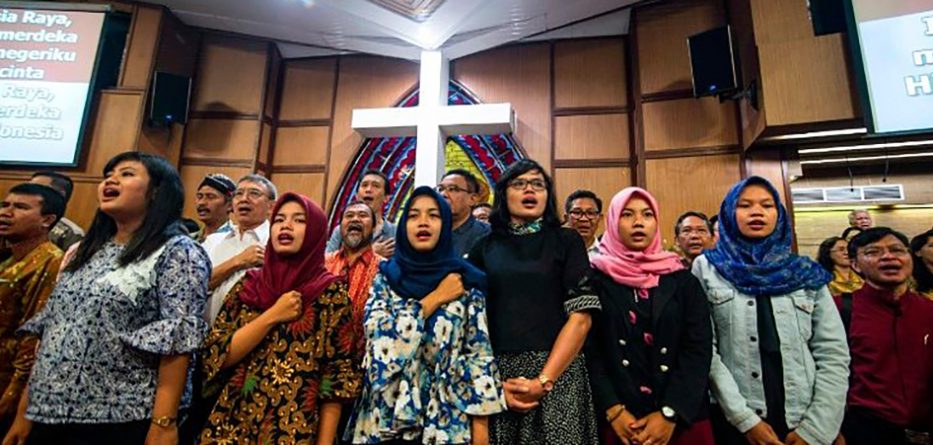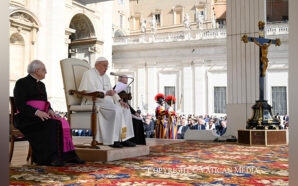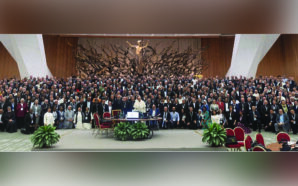The Bishops’ Conference of Indonesia (KWI) concluded its annual meeting on Thursday with a message, drawing inspiration from the Abu Dhabi document and the country’s Pancasila principles to throw light on the current situation in the world’s most populous Muslim nation.
The Catholic Church of Indonesia has resolved to open itself by leaving its comfort zone and being present amid society to strengthen inter-faith brotherhood and coexistence.
“The Church must spread peace and benevolence, respect human rights, cultivate dialogue, promote equality and justice, improve public health, raise awareness of scientific developments and maintain harmonious coexistence in diversity,” wrote Indonesia’s Bishops in the message released during the annual meeting of the Bishops’ Conference of Indonesia (KWI), held in Bandung, which concluded on Thursday.
The message, signed by KWI President, Cardinal Ignatius Suharyo of Jakarta and General Secretary, Bishop Antonius Subianto Bunjamin of Bandung, came after several days of intense study of the theme, “Human fraternity for a peaceful Indonesia.”
Abu Dhabi document
The Bishops particularly focussed on the Abu Dhabi document entitled “Human fraternity for world peace and living together,” signed jointly by Pope Francis and the Grand Imam Ahmed el-Tayeb in Abu Dhabi in February. Some Muslim and Catholic scholars contributed to the analysis, which the Bishops listened to with interest.
The bishops examined the “existence of extremist movements in Indonesia” in the light of the Abu Dhabi Document,” to “find opportunities to strengthen brotherhood among human beings.”
The Pancasila
The Indonesian Bishops expressed esteem for the Pancasila, the 5 principles that form the philosophical and political ideology of the Indonesian state and ensure unity amidst religious pluralism in an officially secular system.
In this perspective, the Catholic Church affirmed its commitment to “participate in the promotion, struggle and realisation of fraternity as shared prosperity.” “Diversity is a necessity and a divine gift that must be cultivated and developed with an attitude of mutual acceptance, respect and mutual cooperation,” the message said.
Brotherhood and coexistence
The bishops wrote that human fraternity must bring goodness in human life in all its dimensions and be a witness of faith in God who unites divided hearts and them to understand each other, work together and live like brothers.
“Coexistence as the basis for realising human fraternity does not only mean finding common points but it is the willingness to accept and appreciate the differences in beliefs and religious teachings,” the message noted, adding that the current challenge of the Indonesian nation is to “contain extremism that often generates acts of terrorism.”
Agents of fraternity and common good
The bishops urged the government to “adopt wise policies based only on the values of Pancasila, such as humanity, unity, wisdom and justice to reduce social inequalities, prevent conflicts among the children, put an end to forms of prolonged violence, block the rate of environmental damage, give equal opportunities for access to resources and create a more dignified system of coexistence.”
Indonesia’s bishops also urged religious leaders, intellectuals, artists, media experts, economists and all the people in their respective sectors of life “to find ways to revive human values for the realisation of public welfare, through human fraternity.”
“We will only be able to live peacefully in this country if all the parties, without exception, always strive to join hands and work together for the common good,” the Bishops stressed.
With thanks to Fides, Vatican News and Robin Gomes, where this article originally appeared.








